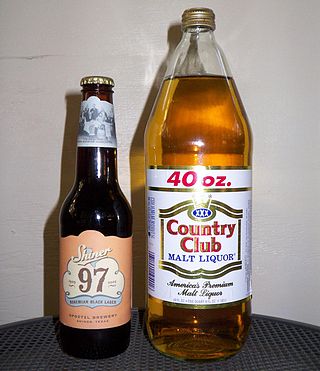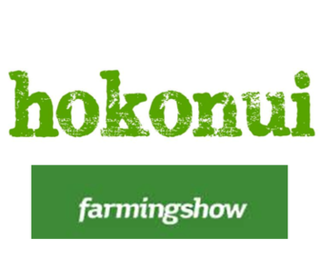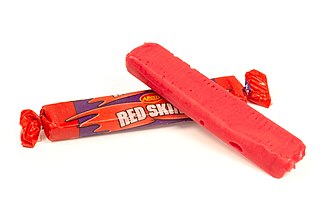Related Research Articles
Television in New Zealand was introduced in 1960 as a state-run service. The broadcasting sector was deregulated in 1989, when the Government allowed competition to the state-owned Television New Zealand (TVNZ). There are currently three forms of broadcast television: a terrestrial (DVB-T) service provided by Freeview; as well as satellite (DVB-S) and internet streaming (IPTV) services provided nationwide by both Freeview and Sky.

Television New Zealand, more commonly referred to as TVNZ, is a television network that is broadcast throughout New Zealand and parts of the Pacific region. All of its currently-operating channels are free-to-air and commercially funded.
Three, stylized as +HR=E, is a New Zealand nationwide television channel. Launched on 26 November 1989 as TV3, it was New Zealand's first privately owned television channel. The channel currently broadcasts nationally in digital free-to-air form via the state-owned Kordia on terrestrial and satellite. Vodafone also carries the channel for their cable subscribers in Wellington and Christchurch. It previously broadcast nationally on analogue television until that was switched off on 1 December 2013.

Malt liquor is a type of mass market beer with high alcohol content, most closely associated with North America. Legally, it often includes any alcoholic beverage with 5% or more alcohol by volume made with malted barley. In common usage, it refers to beers containing a high alcohol content, generally above 6%, which are made with ingredients and processes resembling those for American-style lagers.

Newstalk ZB is a nationwide New Zealand talk-radio network operated by NZME Radio. It is available in almost every radio market area in New Zealand, and has news reporters based in many of them. In addition to talkback, the network also broadcasts news, interviews, music, and sports. The network's hosts include Kate Hawkesby, Mike Hosking, Kerre Woodham, Simon Barnett, James Daniels, Heather du Plessis-Allan, Marcus Lush, Andrew Dickens and Jack Tame. Wellington and Christchurch have a local morning show.
Kerry Raymond Bolton is a New Zealand white supremacist and Holocaust denier, and a published author and political activist on those subjects. He is involved in several nationalist and fascist political groups in New Zealand.

Ladbrokes Coral is an international gambling company founded in 1886. Its product offering includes sports betting, online casino, online poker, and online bingo. The Ladbrokes portion of the group was established in 1886, and Coral in 1926. In November 2016, the companies merged to create Ladbrokes Coral Group. Since March 2018, it has been owned by Entain. Prior to its sale, Ladbrokes Coral was listed on the London Stock Exchange, and was a member of the FTSE 250 Index.

Alcohol advertising is the promotion of alcoholic beverages by alcohol producers through a variety of media. Along with nicotine advertising, alcohol advertising is one of the most highly regulated forms of marketing. Some or all forms of alcohol advertising are banned in some countries. There have been some important studies about alcohol advertising published, such as J.P. Nelson's in 2000.

Hokonui is an Adult Contemporary radio station that first launched in Gore, New Zealand, broadcasting across Southland and now also broadcasts across South Otago and Mid Canterbury. Hokonui also from April 2015 was broadcasting in Taranaki until late in 2020 when it was disestablished by NZME and replaced by Gold AM. The name Hokonui comes from the Hokonui Hills which can clearly be seen in Gore and the Southland Plains.
Garry B. Mallett is a New Zealand politician. He was the fourth President of ACT New Zealand. As of 2010 he resides in Hamilton, New Zealand, and is a former owner-operator of a branch of Les Mills International there.
Under New Zealand law, a licensing trust is a community-owned company with a government-authorised monopoly on the development of premises licensed for the sale of alcoholic beverages and associated accommodation in an area. This applies to both on-licence and off-licence sales.
Dreams is a United Kingdom-based bed retailer and manufacturer specialising in beds, mattresses, bedroom furniture and bed linen. The first Dreams store was opened in 1987 by Mike Clare, and today there are over 200 stores nationwide. The company has its own purpose-designed mattress factory, and currently employs around 1,500 people, across a network of retail showrooms.

Red Ripperz are a red, raspberry-flavoured chewy confectionery manufactured in Australia by Nestlé under their Allen's brand.

The New Zealand Media Council is a non-governmental organisation which exists to uphold standards in the New Zealand media industry and promote freedom of speech in New Zealand. Founded in 1972 as the New Zealand Press Council, it is enabled to hear complaints against newspapers and other publications, particularly regarding allegations of bias and inaccuracy. It can order an offending publication to publish a summary of the Council's ruling, and will generally specify the prominence of the summary.

The Advertising Standards Authority (ASA) is the self-regulatory organisation of the advertising industry in the United Kingdom. The ASA is a non-statutory organisation and so cannot interpret or enforce legislation. However, its code of advertising practice broadly reflects legislation in many instances. The ASA is not funded by the British government, but by a levy on the advertising industry.
Michael Noel James Hosking IV is a New Zealand television and radio broadcaster who has worked for Radio New Zealand and TVNZ and from 2008 has been the weekday breakfast host on Newstalk ZB with "The Mike Hosking Breakfast". He is a supporter of the centre-right National party and is often openly critical of the Labour-led government. He has lived and worked as a broadcaster in Wellington, Christchurch and currently resides in Auckland.
The Advertising Standards Authority (ASA) is an organisation that investigates breaches of advertising standards in New Zealand. The ASA provides a free complaints process for consumers about the content and placement of advertisements. In assessing complaints, the ASA apply the ASA Advertising Codes. Key requirements of these codes include truthful presentation and a sense of social responsibility. If a complaint is upheld, the ASA formally request the advertisement is removed or amended. Decisions are released to the media and the public via email and online.
Ad Standards manages the complaint resolution process of the advertising self-regulation system in Australia.

Alcohol has been consumed in New Zealand since the arrival of Europeans. The most popular alcoholic beverage is beer. The legal age to purchase alcohol is 18.

The Advertising Standards Authority for Ireland (ASAI) is the self-regulatory organisation (SRO) for advertising industry in Ireland. The 7th edition of its code was introduced with effect from March 2016. It has a Complaints Committee to deal with allegations by members of the public of breaches of its code.
References
- ↑ Coop, Harold (2 June 2006). "Alcohol advertising in New Zealand". The New Zealand Medical Journal. 119 (1235).
- ↑ McEwan, Brett; et al. (2013). Pleasure, Profit and Pain: Alcohol in New Zealand and the Contemporary Culture of Intoxication. Hamilton, New Zealand: University of Waikato Faculty of Arts & Social Sciences. p. 103. ISBN 978-0-473-26123-8 . Retrieved 26 April 2015.
- ↑ Edwards, Vivien (5 April 2006). "GALA GP lobbyist remains staunch". New Zealand Doctor: 11.
- 1 2 "Group Against Liquor Advertising and Television New Zealand Ltd - 1999-120, 1999-121, 1999-122". Broadcasting Standards Authority. 19 August 1999. Retrieved 26 April 2015.
- ↑ Fallow, Michael (30 October 1998). "A Gala occasion". The Southland Times. p. 31.
- ↑ "Victory claimed". The Dominion Post. 10 May 1997. p. 3.
- ↑ "City pub's schoolboy liquor advert caned". Waikato Times. 8 March 2000. p. 2.